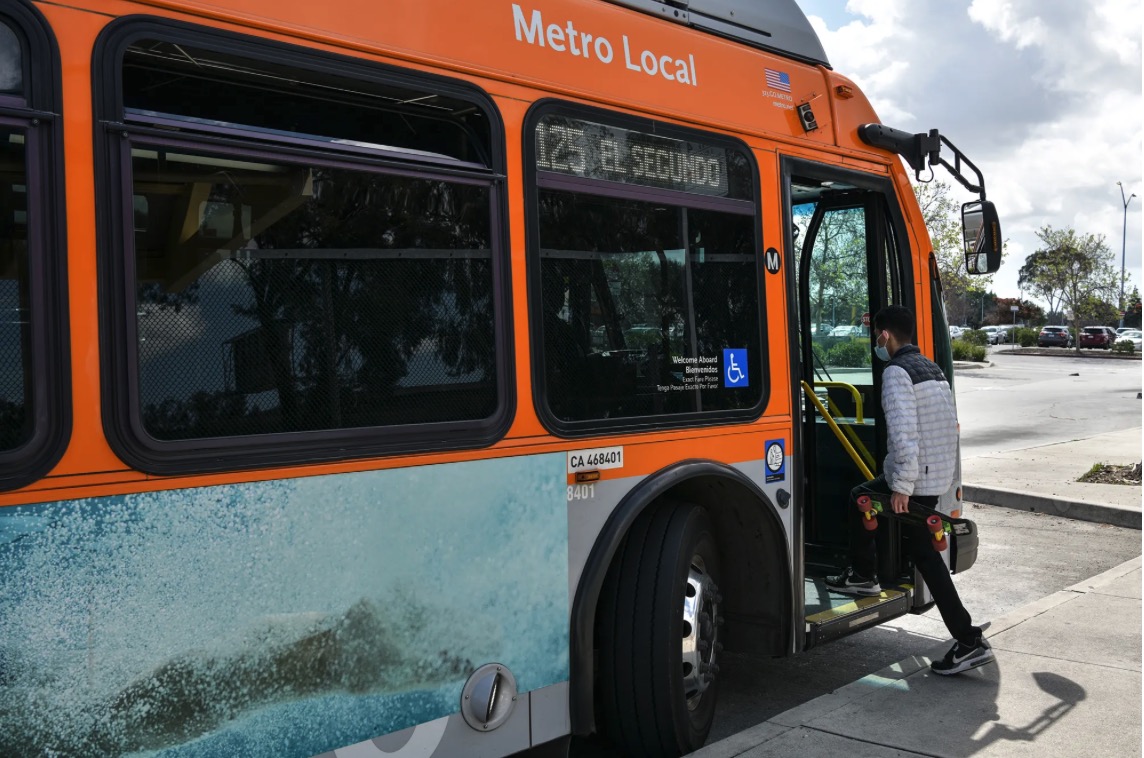Comments
CAL TRANSPO - California’s public transit agencies are seeking $5 billion over five years to keep buses and trains running, but time is running out in the budget process at the state Capitol. To address criticism, they submitted a new accountability plan.
California is grappling with a $31.5 billion budget deficit. Gov. Gavin Newsom denied public transit agencies a lifeline in his latest spending plan, and time is running out.
But transit officials and their supporters in the Legislature aren’t giving up hope yet that the state will offer at least some aid. And Friday, the California Transit Association delivered a plan for how individual agencies should ask for money — and how they would be held accountable for how they spend it.
Transit agencies are seeking $5.15 billion in operating funds over the next five years — warning that without substantial cash, they’ll fall deep into a financial pit caused by a continued decline in ridership since the pandemic and the drying up of federal funds.
Without some kind of financial infusion, Muni — San Francisco’s bus system — may have to start cutting bus lines this summer. Other transit systems are issuing similar dire forecasts.
If services are cut, commuters will be impacted, as will working people who can’t afford their own cars — and certainly not electric vehicles. Increased use of public transit is key to reducing carbon emissions and reaching the state’s climate goals championed by Newsom and Democratic leaders.
But in his updated budget plan unveiled this month, the governor committed only to working with the Legislature to find a solution.
“You can’t do everything,” he said at his May 12 budget briefing. “It’s about balancing other priorities.”
The state Senate wants to make public transit a priority. In its spending proposal, it included the $5.15 billion as “bridge funding.” Supporters say the money can come from a mix of sources that already support transit and would reduce general fund revenue by only $213 million.
TransForm, an advocacy group focused on transit and housing inequities, said it was disappointed in Newsom’s decision.
“The $2.5 billion needed to save Bay Area transit is less costly, in terms of dollars, people, and the planet than the $5 billion in additional transportation costs that will be paid by the people who can least afford it,” said Zack Deutsch-Gross, TransForm policy director.
The budget negotiations are well underway, with a June 15 deadline for the Legislature to pass a budget to keep collecting pay.
Call for help too late?
At a town hall on May 12, Assemblymember Phil Ting, a Democrat from San Francisco and chairperson of the Assembly budget committee, said transit agencies should have been better prepared, and should have “sounded the alarm earlier.”
“Having said that, we are where we are. We can’t change the past,” Ting said.
He said that legislators in the Bay Area Caucus that he leads are focused on the issue and are committed to making sure agencies don’t go over the “fiscal cliff.”
“We know that once these agencies have to stop service, it’s very difficult to turn it back on,” he said.
(Sameea Kamal is a reporter/production assistant at CalMatters covering the state Capitol and California politics. She joined CalMatters in June 2021 from the Los Angeles Times, where she was a News Desk editor. Sameea was one of three 2020 IRE Journalist of Color fellows, and previously worked for the Center for Public Integrity. She earned her bachelor’s degree from the University of California, Berkeley, and her master’s degree in journalism from Columbia Journalism School. Sameea was born and raised in the San Gabriel Valley in Southern California and is one of the Maynard Institute’s M200 fellows. This story was first published in CalMatters.org.)
